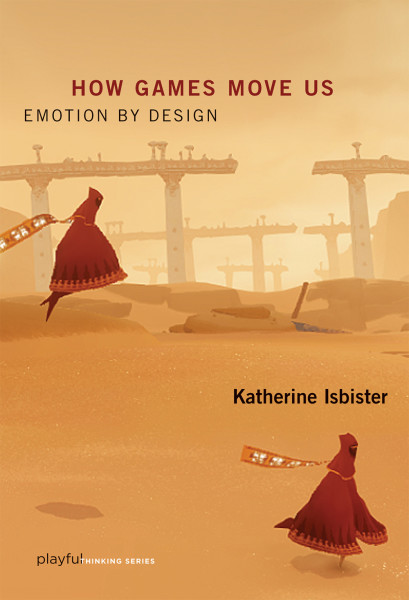The Journal of Comparative Research in Anthropology and Sociology has a new special issue on Video games and insightful gameplay, guest edited by Doris Rusch.
Journal of Comparative Research in Anthropology and Sociology
ISSN 2068 – 0317
Special issue: Video games and insightful gameplay
Volume 6, Number 1
Guest Editor: Doris C. Rusch
***
Editorial
Doris C. Rusch / Video games and insightful gameplay
[Full text / pdf]
Research articles – Special issue on Video Games and Insightful Gameplay
Matt Bouchard / Playing with progression, immersion, and sociality: Developing a framework for studying meaning in APPMMAGs, a case study
[Abstract] [Full text / pdf]
Ioana Cărtărescu-Petrică / Those who play together stay together. A study of the World of Warcraft community of play and practice
[Abstract] [Full text / pdf]
Joanna Cuttell / Arguing for an immersive method: Reflexive meaning-making, the visible researcher, and moral responses to gameplay
[Abstract] [Full text / pdf]
Daniel de Vasconcelos Guimarães / Apocalyptic souls: the existential (anti) hero metaphor in the Metal Gear Solid: Snake Eater, Peace Walker and Ground Zeroes games
[Abstract] [Full text / pdf]
Mikhail Fiadotau / Paratext and meaning-making in indie games
[Abstract] [Full text / pdf]
Sonja Gabriel / Serious games – How do they try to make players think about immigration issues? An overview
[Abstract] [Full text / pdf]
Enrico Gandolfi / Once upon a bit: Ludic identities in Italy, from militant nostalgia to frivolous divertissement
[Abstract] [Full text / pdf]
Kishonna Gray & Wanju Huang / More than addiction: Examining the role of anonymity, endless narrative, and socialization in prolonged gaming and instant messaging practices
[Abstract] [Full text / pdf]
Scott Hughes / Get real: Narrative and gameplay in The Last of us
[Abstract] [Full text / pdf]
Youn Jung Huh / Making sense of gender from digital game play in three-year-old children’s everyday lives: An ethnographic case study
[Abstract] [Full text / pdf]
Xeniya Kondrat / Gender and video games: How is female gender generally represented in various genres of video games?
[Abstract] [Full text / pdf]
Alina Petra Marinescu-Nenciu / Collaborative learning through art games. Reflecting on corporate life with ‘Every Day the Same Dream’
[Abstract] [Full text / pdf]
Elisabeta Toma / Self-reflection and morality in critical games. Who is to be blamed for war?
[Abstract] [Full text / pdf]
Max Watson / A medley of meanings: Insights from an instance of gameplay in League of Legends
[Abstract] [Full text / pdf]
Other research articles
Yitzhak Alfasi, Moshe Levy & Yair Galily / Israeli football as an arena for post-colonial struggle: The case of Beitar Jerusalem FC
[Abstract] [Full text / pdf]
Gautam Ghosh / An ‘infiltration’ of time? Hindu Chauvinism and Bangladeshi migration in/to Kolkata, India
[Abstract] [Full text / pdf]
Adediran Daniel Ikuomola / An exploration of life experiences of left behind wives in Edo State, Nigeria
[Abstract] [Full text / pdf]
Andra Jacob / Migrant’s houses as places and objects of cultural consumption and status display
[Abstract] [Full text / pdf]
Book reviews
Alin Constantin /Book review – Roland Cvetkovski & Alexis Hofmeister, An Empire of Others: Creating Ethnographic Knowledge in Imperial Russia and the USSR, Central European University Press, Budapest, 2014.
[Full text / pdf]


